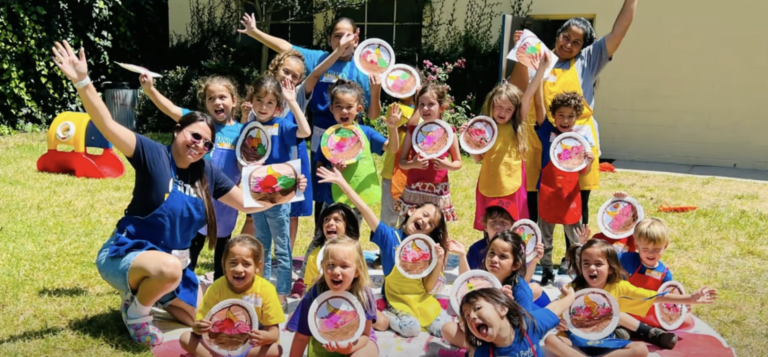Choosing a language summer camp for children involves several important considerations to ensure that the experience is both educational and enjoyable. Here are the steps and factors to keep in mind:
1. Determine Language Goals
- Language Proficiency: Decide if the goal is to introduce a new language or to enhance proficiency in a language your child is already studying. Similarly, determine if you want a camp that provides cultural activities to make the language come alive.
- Cultural Immersion: Consider if you want the camp to include cultural activities that provide a broader understanding of the language’s context.
2. Research Types of Camps
- Day Camps vs. Residential Camps: Decide if you prefer a day camp, where children return home each evening, or a residential camp, where they stay overnight.
- Language-Only vs. Mixed Activity Camps: Some camps focus solely on language learning, while others incorporate sports, arts, and other activities.
3. Camp Curriculum and Activities
- Teaching Methods: Look into how the language is taught. Effective camps often use immersive methods, interactive activities, and small group instruction.
- Native Speakers: Check if the instructors are native speakers or highly proficient in the language.
- Balance of Learning and Fun: Ensure there’s a good mix of classroom instruction and engaging activities to keep children interested.
4. Location and Duration
- Proximity: Consider if you want a local camp or if you’re open to camps further away, possibly in a region where the language is spoken.
- Camp Length: Camps can range from one week to several weeks. Choose a duration that suits your child’s schedule and comfort level.
5. Safety and Supervision
- Staff Qualifications: Verify the qualifications and background checks of the staff.
- Child-to-Staff Ratio: A lower ratio can ensure more personalized attention and better supervision.
- Emergency Procedures: Ensure the camp has clear safety protocols and emergency procedures.
6. Reputation and Reviews
- Camp Accreditation: Check if the camp is accredited by relevant organizations, which can be a mark of quality.
- Reviews and Testimonials: Look for reviews from other parents and children to gauge their experiences.
7. Cost and Value
- Tuition Fees: Compare the cost of different camps and what is included (meals, materials, excursions, etc.).
- Financial Aid: Some camps offer scholarships or financial assistance.
8. Trial Sessions and Visits
- Open Houses: Attend open houses or informational sessions if available.
- Trial Days: Some camps offer trial days where children can experience a day at camp before committing.
9. Communication with the Camp
- Pre-Camp Communication: Ensure the camp provides clear information about what to expect and how to prepare.
- During Camp Updates: Check if the camp offers regular updates to parents about their child’s progress and well-being.
10. Post-Camp Follow-Up
- Continuing Education: Find out if the camp provides resources or recommendations for continuing language learning after the camp ends.
- Feedback Opportunities: Check if the camp seeks feedback from parents and children to continually improve their program.
By considering these factors, you can choose a language summer camp that best fits your child’s needs and interests, ensuring a productive and enjoyable experience.
Did you know that Cultural Bytes Spanish Summer Camp includes all of the above and more? Sign your child up today while spots are still available.








